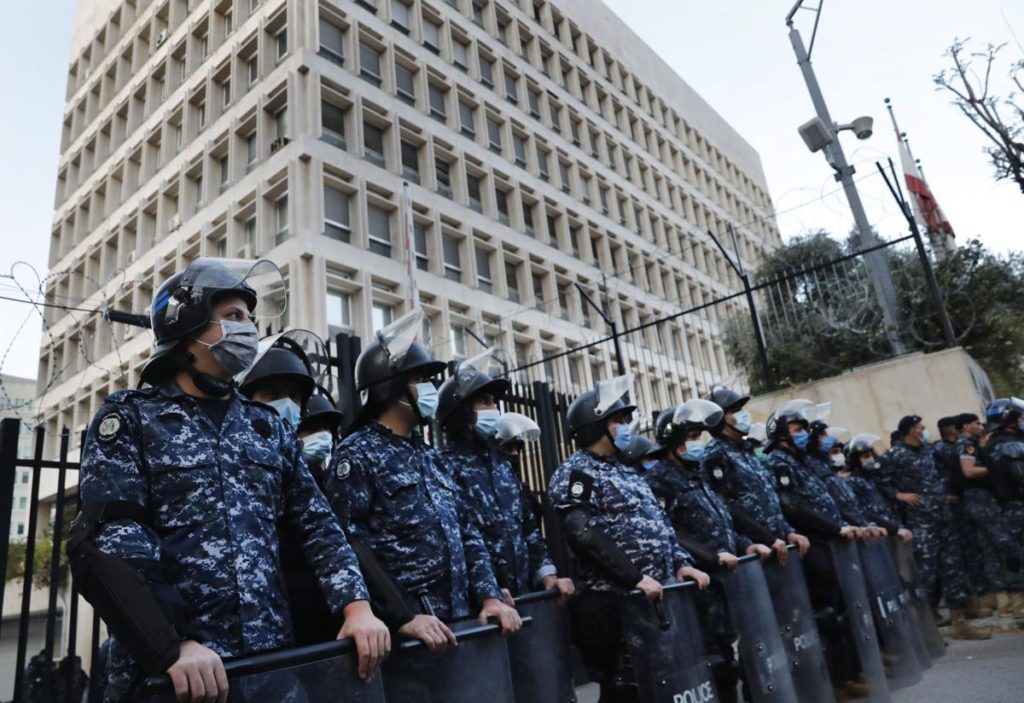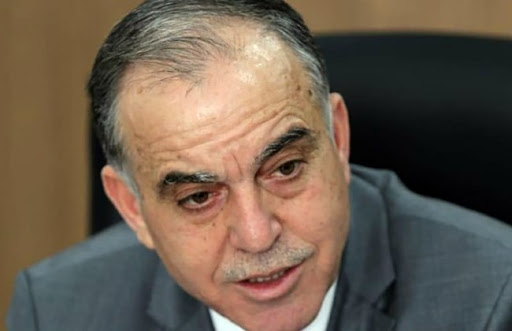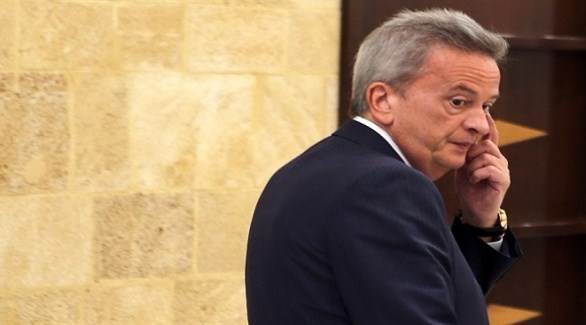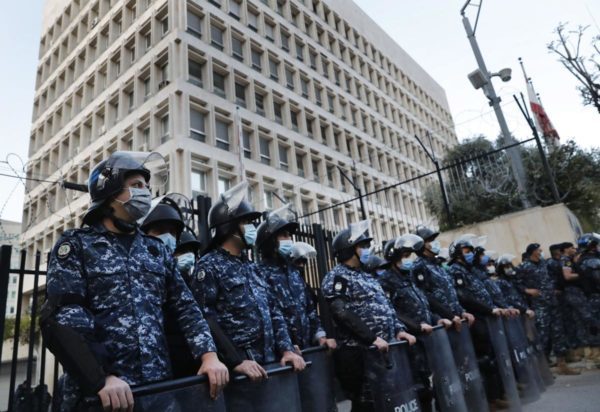BEIRUT- Lebanon’s central bank denied on Friday that it had played a role in exchange rate market manipulation and disclosed its foreign currency transactions to officials in response to an arrest warrant issued for one of its directors.

Central Bank Governor Riad Salameh has come under fire for the collapse of the Lebanese pound, with Prime Minister Hassan Diab holding him responsible in a rare public rebuke that prompted Salameh to say he was subject to a “systematic campaign” of attack.
Financial prosecutor Ali Ibrahim ordered the arrest of the central bank’s director of monetary operations, Mazen Hamdan, for alleged exchange rate manipulation, state news agency NNA reported late on Thursday.
Hamdan was arrested on Thursday and is being held pending an investigation, according to security sources. The prosecutor’s office was not immediately available for comment on the arrest order, details of which have not been released.

The NNA report gave no further details of the accusation against Hamdan. Reuters was not immediately able to reach Hamdan or a lawyer representing him.
In a statement, the central bank said records of its transactions with exchange dealers were being provided to the prosecutor and make clear there was no foul play.
“It is evident…that contrary to what has been rumoured, there was no manipulation in the money exchange market as a result of the operations of Banque du Liban,” the statement said.
Lebanon has cracked down on foreign exchange dealers who have allegedly violated an agreed selling price for dollars set at 3,200 pounds by the central bank, arresting several dealers and the head of their union, prompting an open-ended strike by exchange bureaus.

The pound has tumbled by more than half against the dollar since October amid a severe dollar crunch and broad financial crisis that has decimated foreign inflows and seen commercial banks sever Lebanese from their hard currency savings.
Dollars have in recent weeks been changing hands at rates above 4,000 pounds on a black market, with informal transactions taking place outside the shut exchange bureaus, often via discrete meetings arranged by phone to avoid security forces.
The central bank has maintained an official rate of 1,507.5 pounds for importers of wheat, fuel and medicine.
The central bank said in its statement on Friday it would continue to inject dollars into the economy to maintain an exchange rate of 3,200 pounds for imports, with the aim of reducing food prices that have soared.
(Reuters)


Leave a Reply
You must be logged in to post a comment.